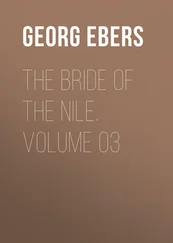Charles Warner - My Winter on the Nile
Здесь есть возможность читать онлайн «Charles Warner - My Winter on the Nile» — ознакомительный отрывок электронной книги совершенно бесплатно, а после прочтения отрывка купить полную версию. В некоторых случаях можно слушать аудио, скачать через торрент в формате fb2 и присутствует краткое содержание. Жанр: Путешествия и география, История, foreign_edu, foreign_antique, foreign_prose, на английском языке. Описание произведения, (предисловие) а так же отзывы посетителей доступны на портале библиотеки ЛибКат.
- Название:My Winter on the Nile
- Автор:
- Жанр:
- Год:неизвестен
- ISBN:нет данных
- Рейтинг книги:5 / 5. Голосов: 1
-
Избранное:Добавить в избранное
- Отзывы:
-
Ваша оценка:
- 100
- 1
- 2
- 3
- 4
- 5
My Winter on the Nile: краткое содержание, описание и аннотация
Предлагаем к чтению аннотацию, описание, краткое содержание или предисловие (зависит от того, что написал сам автор книги «My Winter on the Nile»). Если вы не нашли необходимую информацию о книге — напишите в комментариях, мы постараемся отыскать её.
My Winter on the Nile — читать онлайн ознакомительный отрывок
Ниже представлен текст книги, разбитый по страницам. Система сохранения места последней прочитанной страницы, позволяет с удобством читать онлайн бесплатно книгу «My Winter on the Nile», без необходимости каждый раз заново искать на чём Вы остановились. Поставьте закладку, и сможете в любой момент перейти на страницу, на которой закончили чтение.
Интервал:
Закладка:
This one is preceded by half a dozen shabbily dressed musicians beating different sorts of drums and blowing hautboys, each instrument on its own hook; the tune, if there was one, has become discouraged, and the melody has dropped out; thump, pound, squeak, the music is more disorganized than the procession, and draggles on in noisy dissonance like a drunken militia band at the end of a day’s “general training.”
Next come some veiled women in black; and following them are several small virgins in white. The bride walks next, with a woman each side of her to direct her steps. This is necessary, for she is covered from head to feet with a red cashmere shawl hanging from a sort of crown on the the top of her head. She is in appearance, simply a red cone. Over her and on three sides of her, but open in front, is a canopy of pink silk, borne on poles by four men. Behind straggle more musicians, piping and thumping in an independent nonchalance, followed by gleeful boys. One attendant sprinkles rose-water on the spectators, and two or three others seem to have a general direction of the course of the train, and ask backsheesh for it whenever a stranger is met.
The procession gets tired occasionally and sits down in the dust of the road to rest. Sometimes it is accompanied by dancers and other performers to amuse the crowd. I saw one yesterday which had halted by the roadside, all the women except the bride squatting down in patient resignation. In a hollow square of spectators, in front, a male dancer was exhibiting his steps. Holding a wand perpendicularly before him with both hands, he moved backwards and forwards, with a mincing gait, exhibiting neither grace nor agility, but looking around with the most conceited expression I ever saw on a human face. Occasionally he would look down at his legs with the most approving glance, as much as to say, “I trust, God being great, that you are taking particular notice of those legs; it seems to me that they couldn’t be improved.” The fellow enjoyed his dancing if no one else did, and it was impossible to get him to desist and let the procession move on. At last the cortege made a detour round the man who seemed to be so popular with himself, and left him to enjoy his own performance.
Sometimes the expense of this zeffeh , or bridal procession, is shared by two parties, and I have seen two brides walking under the same canopy, but going to different husbands. The public is not excluded from an interest in these weddings. The house of a bridegroom, near the Mooskee, was illuminated a night or two before the wedding, colored lanterns were hung across the street, and story-tellers were engaged to recite in front of the house. On the night of the marriage there was a crowd which greatly enjoyed the indelicate songs and stories of the hired performers. Late in the evening an old woman appeared at a window and proclaimed that the husband was contented with his wife.
An accompaniment of a bridal procession which we sometimes saw we could not understand. Before the procession proper, walked another, preceded by a man carrying on his head a high wooden cabinet, with four legs, the front covered with pieces of looking-glass and bits of brass; behind him were musicians and attendants, followed by a boy on horseback, dressed richly in clothes too large for him and like a girl’s. It turned out to be a parade before circumcision, the friends of the lad having taken advantage of the bridal ceremony of a neighbor to make a display. The wooden case was merely the sign of the barber who walked in the procession and was to perform the operation.
“I suppose you are married?” I ask Hadji when the procession has gone by.
“Yes, sir, long time.”
“And you have never had but one wife?”
“Have one. He quite nuff for me.”
“How old was she when you married her?”
“Oh, I marry he, when he much girl! I tink he eleven, maybe twelve, not more I tink.”
Girls in Egypt are marriageable at ten or eleven, and it is said that if not married before they are fourteen they have an excellent chance of being old maids. Precocious to mature, they are quick to fall away and lose their beauty; the laboring classes especially are ugly and flabby before eighteen. The low mental, not to say physical, condition of Egyptian women is no doubt largely due to these early marriages. The girl is married and is a mother before she has an opportunity to educate herself or to learn the duties of wife or mother, ignorant of how to make a home pleasant and even of housekeeping, and when she is utterly unfit to have the care and training of a child. Ignorant and foolish, and, as Mr. Lane says, passionate, women and mothers can never produce a great race. And the only reform for Egypt that will give it new vitality and a place in the world must begin with the women.
The Khedive, who either has foresight or listens to good advice, issued a firman some years ago forbidding the marriage of girls under fifteen. It does not seem to be respected either in city or country; though I believe that it has some influence in the city, and generally girls are not married so young in Cairo as in the country. Yet I heard recently in this city of a man of sixty who took a wife of twelve. As this was not his first wife, it could not be said of him, as it is said of some great geniuses, that he struck twelve the first time.
CHAPTER VI.—MOSQUES AND TOMBS
WHAT we in Cairo like most to do, is to do nothing in the charming winter weather—to postpone the regular and necessary sight-seeing to that limbo to which the Arabs relegate everything— bookra , that is, tomorrow. Why not as well go to the Pyramids or to Heliopolis or to the tombs of the Memlooks tomorrow! It is to be the same fair weather; we never plan an excursion, with the proviso, “If it does not rain.” This calm certainty of a clear sky adds twenty-five per cent, to the value of life.
And yet, there is the Sirocco; that enervating, depressing south wind, when all the sands of the hot desert rise up into the air and envelope everything in grit and gloom. I have been on the Citadel terrace when the city was only dimly outlined in the thick air, and all the horizon and the sky were veiled in dust as if by a black Scotch mist. We once waited three days after we had set a time to visit the Pyramids, for the air to clear. The Sirocco is bad enough in the town, the fine dust penetrates the closed recesses of all apartments; but outside the city it is unbearable. Indeed any wind raises the sand disagreeably; and dust is the great plague of Egypt. The streets of Cairo, except those that are sprinkled, are seldom free from clouds of it. And it is an ancient dust. I suppose the powdered dead of thousands of years are blowing about in the air.
The desert makes itself apparent even in Cairo. Not only is it in the air, but it lies in wait close to the walls and houses, ready to enter at the gates, sifting in through every crevice. Only by constant irrigation can it be driven back. As soon as we pass beyond the compact city eastward, we enter the desert, unless we follow the course of some refreshing canal. The drive upon it is a favorite one on summer nights. I have spoken of the desert as hot; but it is always cool at night; and it is the habit of foreigners who are detained in Cairo in the summer to go every night to the desert to cool off.
The most conspicuous object in Cairo, from all points, is the Citadel, built on a bold spur of the Mokattam range, and the adjoining Mosque of Mohammed Ali in which that savage old reformer is buried. The mosque is rather Turkish than Saracenic, and its two slender minarets are much criticised. You who have been in Constantinople are familiar with the like slight and graceful forms in that city; they certainly are not so rich or elegant as many of the elaborately carved and more robust minarets of Cairo which the genius of the old architects reared in the sun-burst of Saracenic architecture; but they are very picturesque and effective in their position and especially against a poetic evening sky.
Читать дальшеИнтервал:
Закладка:
Похожие книги на «My Winter on the Nile»
Представляем Вашему вниманию похожие книги на «My Winter on the Nile» списком для выбора. Мы отобрали схожую по названию и смыслу литературу в надежде предоставить читателям больше вариантов отыскать новые, интересные, ещё непрочитанные произведения.
Обсуждение, отзывы о книге «My Winter on the Nile» и просто собственные мнения читателей. Оставьте ваши комментарии, напишите, что Вы думаете о произведении, его смысле или главных героях. Укажите что конкретно понравилось, а что нет, и почему Вы так считаете.












